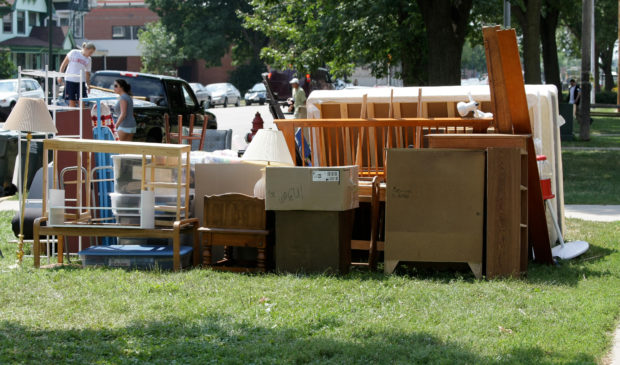City aims to fast-track displacement prevention program as Covid-19 destabilizes residents
Tuesday, April 14, 2020 by
Ryan Thornton The Neighborhood Housing and Community Development Department is attempting to accelerate progress on the first effort of its Displacement Prevention programs as more households find themselves unable to pay monthly rent or home mortgages due to Covid-19.
Erica Leak, policy and planning manager for the department, told City Council’s Housing and Planning Committee on Monday that the Tenant Stabilization Program was intended to be available this summer but the department is in discussion with the Purchasing Office to expedite the process as much as possible. Leak said the city released solicitation for the three-year, $750,000 contract before the impacts of Covid-19 had reached the community.
The city announced the program in early March as the first initiative in its Displacement Prevention Portfolio, a set of programs managed by the Austin Housing Finance Corporation and funded by the city’s housing trust fund. The programs offer financial assistance and resources to help households avoid and recover from displacement caused by rising housing costs.
The Tenant Stabilization Program will administer up to $3,000 per year in rental assistance as well as eviction prevention support and tenant relocation services to low-income households through selected nonprofit organizations. Participating organizations will be in charge of marketing the program, approving applicants and administering funds. The program will serve households earning up to 60 percent of the median family income, or $56,760 for a four-person household.
The stabilization program would add to a number of federal, state and local housing assistance and protections programs currently approved or available in response to Covid-19, including Council’s Relief in a State of Emergency (RISE) fund that includes $15 million in direct relief and financial assistance to residents.
According to data compiled by the National Multifamily Housing Council, only 69 percent of households had paid their rent by April 5 this month, compared to 82 percent that had paid by the same date last year. Sourcing payment dates from approximately 13.4 million units, the data shows a 12-percentage-point drop in households able to pay rent from March to April.
The federal government has offered temporary protections in the form of a moratorium on eviction filings and late fees for many multifamily properties and forbearance on mortgages insured by the Federal Housing Administration. The city has also adopted a 60-day notice requirement for landlords attempting to evict tenants due to missed payments related to the pandemic.
The federal Coronavirus Aid, Relief and Economic Security (CARES) Act will also provide the city with $4.6 million in Community Development Block Grant funds and about $2.3 million in an Emergency Solutions Grant. The funds may be used to support vulnerable homeowners, renters and individuals in need of emergency shelter. Leak said information involving the city’s use of CARES Act funds will be compiled and posted online soon.
Renters may also qualify for up to $1,500 in one-time rental assistance in emergency Covid-19 funds from the housing trust fund. Additional assistance programs from the city, Travis County and social services organizations are listed on the city’s housing resources page.
The city plans to announce more Displacement Prevention initiatives in the months ahead to help vulnerable residents locate income-restricted housing, defend against house flippers, return to their previous neighborhoods, and make necessary home repairs.
Photo made available through a Creative Commons license.
The Austin Monitor’s work is made possible by donations from the community. Though our reporting covers donors from time to time, we are careful to keep business and editorial efforts separate while maintaining transparency. A complete list of donors is available here, and our code of ethics is explained here.
You're a community leader
And we’re honored you look to us for serious, in-depth news. You know a strong community needs local and dedicated watchdog reporting. We’re here for you and that won’t change. Now will you take the powerful next step and support our nonprofit news organization?









